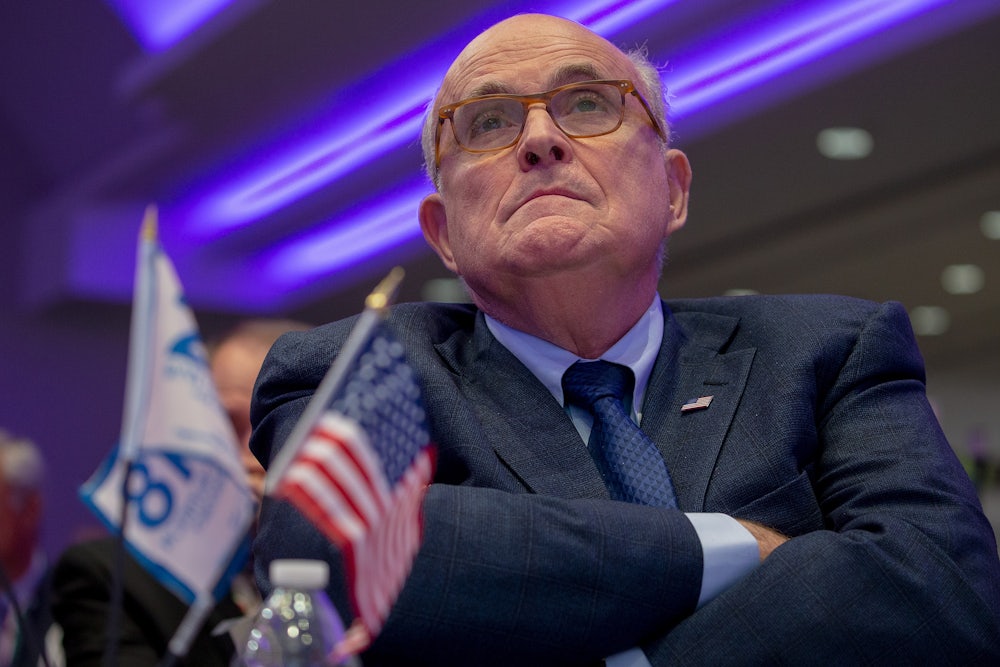The president’s personal lawyer this week sketched out a new approach to negotiating Trump’s interview with the special counsel as part of the Russia investigation. It’s unknown, however, whether Mueller will accept Giuliani’s parameters.
In an interview with BuzzFeed on Thursday, Giuliani said that the president’s legal team could negotiate on two separate tracks for interviews between Mueller and Trump. One track is “collusion,” referring to questions about whether the Trump campaign conspired with the Russian government. The New York Times reported on Wednesday that Mueller told Trump’s lawyers that he would accept written answers from the president to questions about Russian electoral interference and whether his campaign colluded with Moscow to facilitate it. Giuliani acknowledged to BuzzFeed that Mueller has “a better argument for that [interview], legally and factually.”
On the second track of “obstruction,” which relates to Trump’s post-inauguration efforts to stymie the Russia investigation, Giuliani indicated he would put up a much harder legal fight. “That’s a no-go,” he told the Associated Press on Thursday. “That is not going to happen. There will be no questions at all on obstruction.” Giuliani later clarified to BuzzFeed that he was referring only to Mueller’s first set of questions on the matter, not the subject entirely. Nonetheless, he also said he believes he has a stronger legal position to challenge questions about Trump’s presidential acts.
Trump’s legal team has spent most of the year resisting Mueller’s efforts to secure an interview with the president. While Trump often says publicly that he would be willing to sit down with the special counsel, many members of his inner circle view it as a potentially calamitous legal risk because of the president’s penchant to lie about matters large and small. Giuliani’s new approach could mitigate some of that peril—but not eliminate it entirely.
